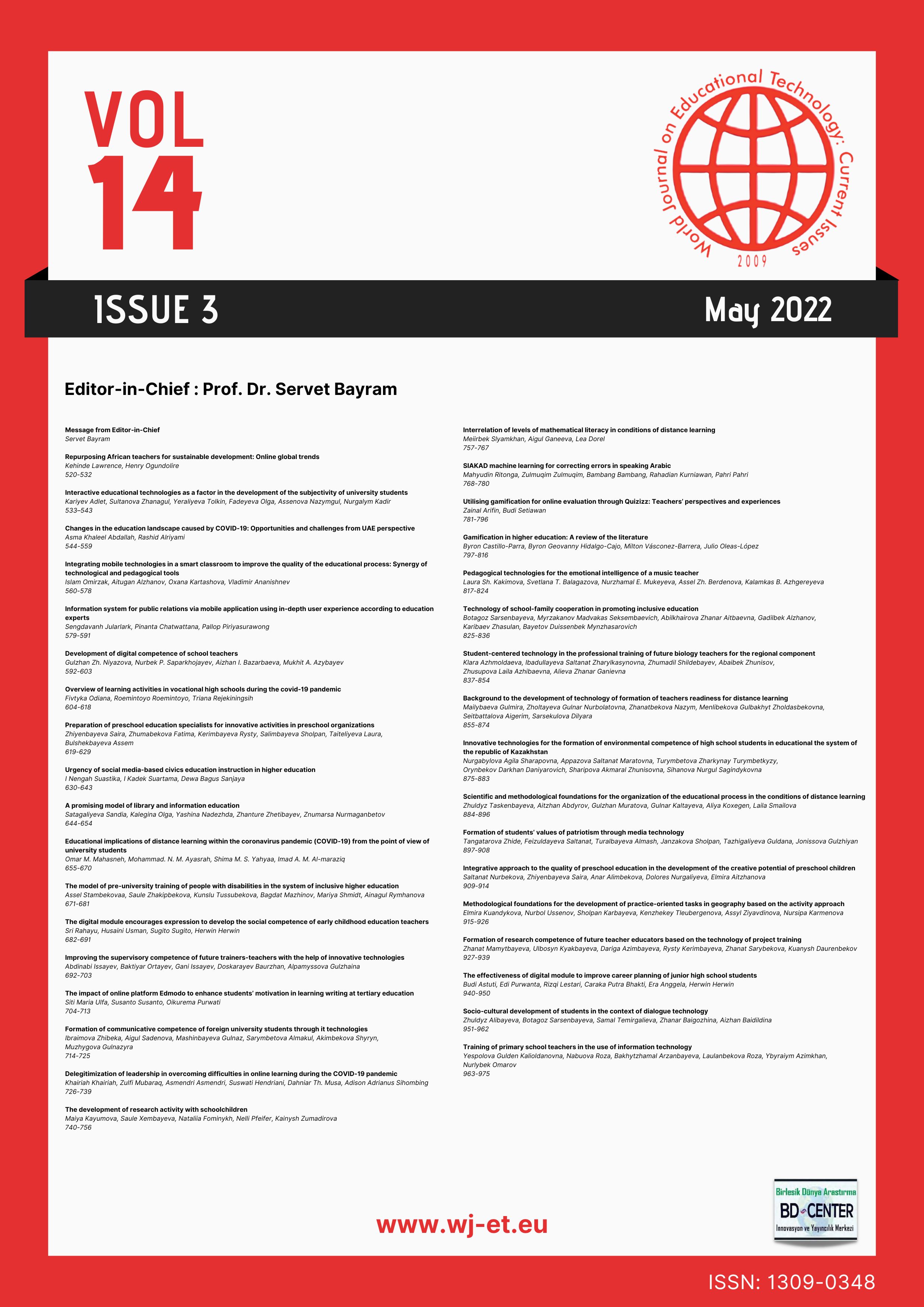Socio-cultural development of students in the context of dialogue technology
Main Article Content
Abstract
In this research, it was aimed and designed to develop the socio-cultural development of students in the context of dialogue technology. Quantitative research method was used in the research, the research was carried out in the spring term of 2021-2022. Volunteer 288 students who continue their education at schools participated in the research. In the research, 5 weeks of online training was given to the students. In the research, the "technology and socio-cultural" measurement tool developed by the researchers and compiled by experts in the field was used. The measurement tool was delivered to the students by online method and collected. The analysis of the data was made by using the SPSS program, frequency analysis and t-test, and the results were added to the research in the presence of tables. According to the results obtained from the research, it was concluded that the socio-cultural development of the students in the context of dialogue technology was high. While this situation was determined as good for education, it was concluded that it was used by reflecting the distance education systems in the course.
Downloads
Article Details

This work is licensed under a Creative Commons Attribution 4.0 International License.
World Journal on Educational Technology: Current Issues is an Open Access Journal. The copyright holder is the author/s. Licensee Birlesik Dunya Yenilik Arastirma ve Yayincilik Merkezi, North Nicosia, Cyprus. All articles can be downloaded free of charge. Articles published in the Journal are Open-Access articles distributed under CC-BY license [Attribution 4.0 International (CC BY 4.0)].
Birlesik Dunya Yenilik Arastirma ve Yayincilik Merkezi (BD-Center)is a gold open-access publisher. At the point of publication, all articles from our portfolio of journals are immediately and permanently accessible online free of charge. BD-Center articles are published under the CC-BY license [Attribution 4.0 International (CC BY 4.0)], which permits unrestricted use, distribution, and reproduction in any medium, provided the original authors and the source are credited.
